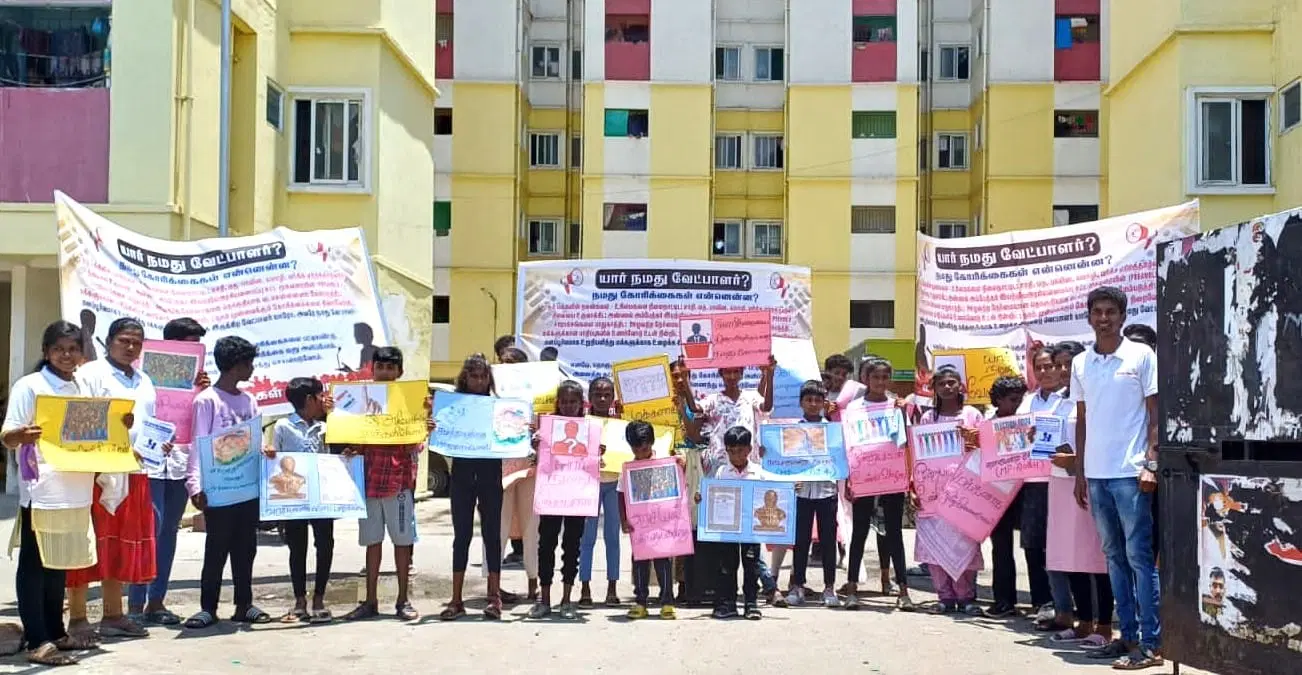During the recent 2024 Lok Sabha Elections, we published details of candidates, MP profiles, interviews, voter guides, analysis and data on Citizen Matters. We also tracked what active citizens were doing to encourage informed choices in their communities and documented some such initiatives — here’s a peek into a few of them.
Sarath Kumar from North Chennai’s Vyasarpadi, runs a tuition centre in the area along with his friend Sakthivel. The two started the tuition centre under the name, Vyasai Thozhargal i.e. friends of Vyasarpadi. I was interested in his insights into how connected people felt to this process of elections, as he was running a door-to-door voting campaign at the time of our conversation.
The campaign brought in some more interesting insights. “People were asking me what election this was, whether it was the MP, the MLA, or corporation,” Sarath said. “Many felt alienated, they didn’t see the point in voting.”
Read Sarath’s article here: Creating voter awareness for the Lok Sabha elections: Examples from Vyasarpadi in North Chennai
In Mumbai’s Govandi, Fayaz Alam, a community leader who heads the Govandi Citizen’s Forum, told me similar things. In their manifesto, one of the demands was that the elected representative come and visit them often. In Govandi as well, there appears to be a disconnect between people and the elections. “There is scepticism towards politicians.” Fayaz writes in his piece on Govandi. Similar to Vyasai Thozhargal’s stance, Fayaz wants to empower people in his area to take part in the democratic process.
Like Vyasarpadi, the scepticism towards politicians is similar in Govandi. However, many in Govandi are also motivated to vote, given the atmosphere of hate speech and violence towards Muslims in recent years. Fayaz cites a recent interview with a BJP candidate calling Govandi as a “mini Pakistan.” “The reference definitely shook up the people, they were scared,” Fayaz told me. According to him, some feel a sense of urgency to ensure these kinds of threats do not happen again, and are keen on voting as a result.
Here’s Fayaz’s article for you to get a better sense of the voters’ pulse in Govandi: Lok Sabha 2024: Civic manifesto by Govandi voters for a better future

In Kandivali East, Anmol, a 15-year-old student, tells me about his relationship with politics. “My parents wouldn’t discuss politics in my presence. They don’t want me to get involved,” he says. “They see it as a world full of corruption, conflict and violence.”
Anmol, however, is interested. He talks about roads that need attention, improving the public education system, civic service delivery and more. His frustration is that elected representatives only begin to work on these in the build up to elections, echoing both Fayaz’s and Sarath’s sentiments of absentee representatives, who only arrive at the time of voting.
Read Anmol’s article here:What we want from our future MP: Observations of a student from Mumbai’s Kranti Nagar
Anmol’s description of his parents hiding this world of politics from him is another reminder of a culture of fear and mistrust towards politicians, a culture that a lack of field work, transactional relationships, and forgotten promises might encourage.
~~~
Savitha Ganesh is an Engagement Associate at Oorvani Foundation.

